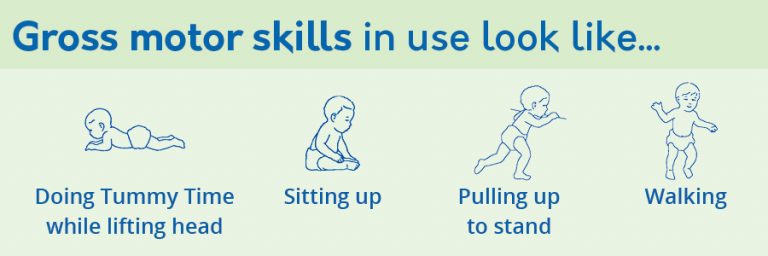
Table of Contents
Introduction
As a new parent, you may be wondering how to help your baby develop their motor skills. Motor skills are the abilities to move and control different parts of the body, and they are important for a baby’s growth and development. From rolling over to crawling and walking, motor skills play a crucial role in a baby’s life. In this article, we will discuss some helpful tips on how to develop motor skills in babies.
1. Tummy Time
Tummy time is an essential exercise for a baby’s motor development. It helps strengthen the muscles in the neck, shoulders, and back, which are necessary for crawling and sitting up. Place your baby on their tummy for a few minutes every day on a soft, comfortable surface. You can also make it more fun by placing toys within reach or getting down on the floor with them.
2. Encourage Crawling
Crawling is a significant milestone in a baby’s life. It helps develop their gross motor skills, coordination, and balance. Encourage your baby to crawl by placing toys just out of reach, creating obstacles to crawl over, or playing crawling games with them.
3. Walking Practice
As your baby grows, they will begin to take their first steps. Walking is a critical motor skill that requires balance, coordination, and muscle strength. You can help your baby develop walking skills by holding their hands and encouraging them to take steps, using a baby walker, or providing a safe area for them to practice walking independently.
4. Play with Balls
Playing with balls is a fun way to develop a baby’s motor skills. Rolling and catching balls help improve hand-eye coordination and strengthen arm and leg muscles. You can start with soft, lightweight balls and gradually move on to heavier and more challenging ones as your baby grows.
5. Finger Painting
Finger painting is a great activity to help develop your baby’s fine motor skills. The act of holding and manipulating the paintbrush or finger helps build hand strength and dexterity. You can use edible finger paint or make your own using safe, non-toxic materials.
6. Read Books
Reading books to your baby not only helps with language development but also improves their fine motor skills. Turning pages, pointing to pictures, and holding the book help build finger and hand strength. Choose books with interactive elements like flaps or textures to make it more engaging.
Conclusion
There are many ways to help your baby develop their motor skills. Tummy time, crawling, walking practice, playing with balls, finger painting, and reading books are just a few examples. Always remember to make it fun and engaging for your baby, and don’t push them too hard. With patience and practice, your baby will reach their motor milestones in no time.
Frequently Asked Questions
Q: When should I start tummy time with my baby?
A: You can start tummy time as early as one week old for a few minutes each day. Gradually increase the time as your baby gets stronger and more comfortable.
Q: How long does it take for a baby to start crawling?
A: Every baby is different, but most begin crawling between six to ten months of age.
Q: Is it okay to use a baby walker to help my baby learn to walk?
A: It is not recommended to use a baby walker as it can be dangerous and delay the development of walking skills. Instead, provide a safe area for your baby to practice walking independently.
Q: How can I make finger painting safe for my baby?
A: You can use edible finger paint or make your own using safe, non-toxic materials like flour and food coloring.
Q: How often should I read books to my baby?
A: Aim for at least 15 minutes of reading time each day with your baby.
